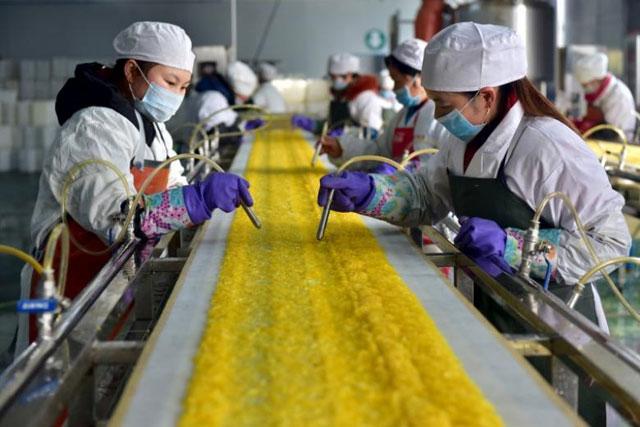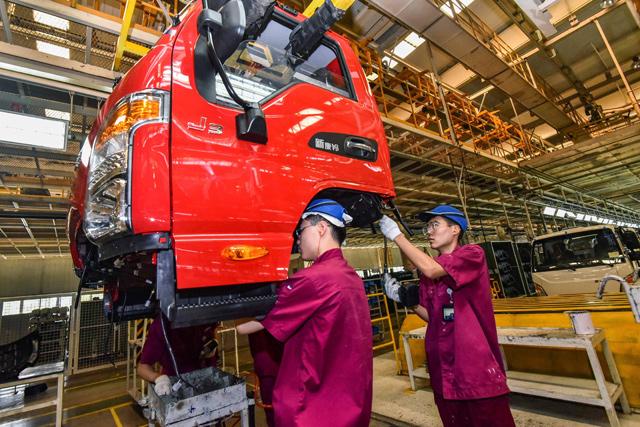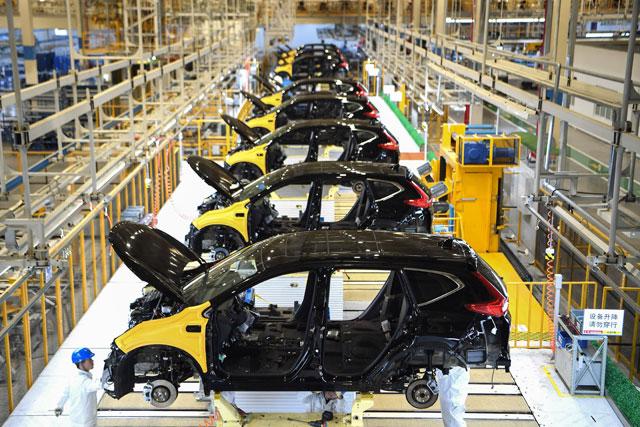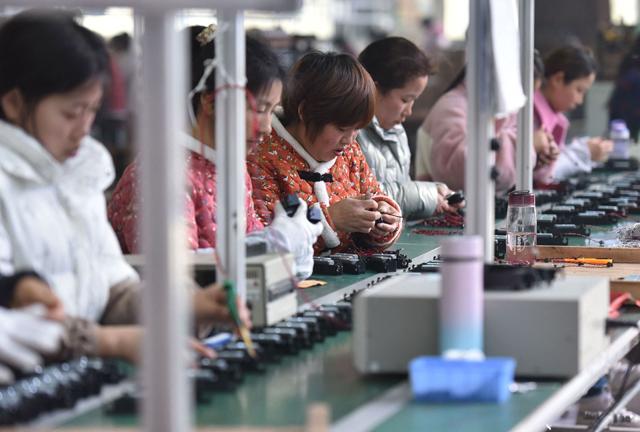You are here
China factory activity stabilises in January
By AFP - Feb 01,2017 - Last updated at Feb 01,2017

Employees work at a food processing factory in Yichang, Hubei province (Reuters file photo)
BEIJING — Chinese factory activity expanded last month, data showed Wednesday, the latest indication that the world's second largest economy is stabilising, but analysts warned of headwinds caused by emerging US protectionism.
The crucial manufacturing sector has for years been struggling in the face of sagging world demand for Chinese products and excess industrial capacity left over from the country's recent infrastructure boom.
But an upturn in the housing and construction markets thanks to cheap credit — following a series of monetary easing measures — has contributed to a rebound in manufacturing activity.
The official purchasing managers' index (PMI), which gauges conditions at factories and mines, came in at 51.3 in January, down from 51.4 the previous month.
A figure above 50 marks an expansion of manufacturing activity, and below 50 a contraction. Analysts surveyed by Bloomberg had expected an average of 51.2 for January.
The marginal dip came as many businesses closed for Chinese New Year at the end of the month, with workers heading home to celebrate.
But Raymond Yeung, chief greater China economist at Australia & New Zealand Banking Group Ltd. in Hong Kong, told Bloomberg News the numbers suggest the manufacturing sector was continuing to consolidate.
"Looking ahead, the government will continue to juggle growth and capacity reduction. This headline PMI will still stay above the threshold of 50, but it's hardly impressive," he said.
While Beijing has said it wants to re-orient the economy away from a reliance on exports and debt-fuelled investment, and towards a consumer-driven model, the transition has proven challenging.
China is a vital driver of global growth, but its economy expanded just 6.7 per cent in 2016 — its weakest rate in a quarter of a century, though a slight uptick in the last three months fuelled hope the slowing trend could be coming to an end.
However, China, along with most other economies, faces an uncertain future with US President Donald Trump threatening to review global trade deals and tariffs as part of a seemingly protectionist agenda.
BMI Research, Fitch Group's research arm, said in a note that manufacturing will continue to "underperform" sectors like services.
"Weaker domestic demand and an uncertain external environment due to rising US protectionism will weigh on the former, while services will benefit from continued investment by the government and the private sector," it said, according to Bloomberg News.
Related Articles
BEIJING — Chinese factory activity stabilised in June, data showed on Wednesday, but output was hit by supply shortages of key commodities a
BEIJING — China’s November factory activity rebounded for the first time in seven months, data showed on Saturday, despite the looming threa
BEIJING — Factory activity in China picked up in February, official data showed on Tuesday, as market demand and production resumed followin
















